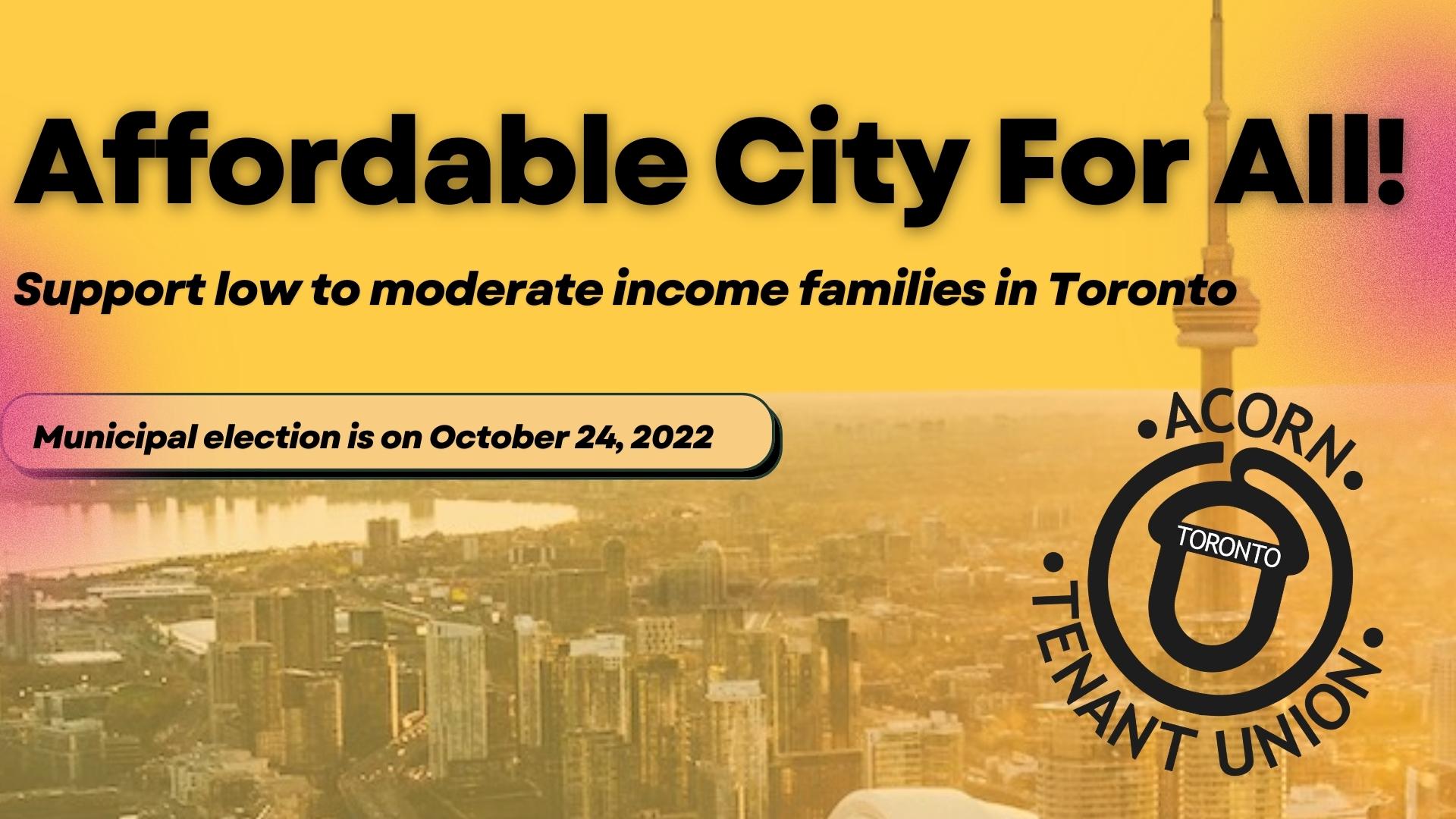Toronto Star: John Tory pledges increased housing density if he’s re-elected — but will city council go along?
Posted August 24, 2022
Posted August 24, 2022
Mayor John Tory’s campaign pledge to boost affordable housing hinges on swaths of Toronto becoming denser and taller, a change resisted by many of his city council allies who want to preserve single-family enclaves.
On Tuesday, Tory, 68, released his five-point plan to address the housing crisis — the first announcement of his campaign to win a third term in office in the Oct. 24 civic election. He faces 30 challengers.
Tory promises options to permit “missing middle housing” — duplexes, townhomes or small apartment blocks — and allow “greater mid-range density on major roads and in areas served by transit.”
The plan also includes: speeding up building approvals via a new city “development and growth” division using existing staff; helping create more co-op, supportive and affordable housing by allocating city land to non-profits; and spurring construction of rental buildings by reducing fees and charges.
Tory also says he would ask the Ontario government to let the city enact a “use it or lose it” policy for land that sits undeveloped despite approvals for housing construction.
His campaign said such land “would be subject to higher taxes and have their zoning approvals expire. This does not contemplate expropriation,” and would be determined by the Ontario government with input from homebuilders.
Earlier this year a provincial task force found that a key driver of the affordable housing shortage is municipalities keeping most land off-limits to anything but single-family homes — 70 per cent in Toronto’s case.
Toronto councillors routinely fight applications to build even so-called gentle density, such as stacked townhomes, among single-family homes. Tory has voted with councillors who cite residents’ concerns about maintaining neighbourhood character and preventing increased traffic.
In 2017, city planners and Coun. Jaye Robinson successfully petitioned the Ontario Municipal Board to remove two rows of four-storey townhomes from a Keewatin Avenue development after residents decried “density creep.”
In 2019, opposition from Coun. Paul Ainslie and his constituents prompted a developer to cut dozens of affordable units and four-bedroom family units from a development on former city land near Guildwood GO station in Scarborough.
Tory suggested Tuesday, in response to a reporter’s question, that strong-mayor powers tied to provincial priorities that the Ford government plans to give to the leaders of Toronto and Ottawa, will help speed up the approval process.
As to his council allies fighting density, Tory’s campaign said he supports allowing greater density as the default rule for “major roads” and, if re-elected, will “work with councillors on getting his plan passed by council.”
Mark Richardson, a housing advocate with volunteer group HousingNowTO, echoed Tory’s statement that a national housing shortage is being acutely felt in Toronto, but said “that is not a sentiment shared by the rest of our city councillors.
“We have yet to see how much willingness a ‘strong mayor’ would have to upset the neighbours — time will tell.”
HousingNowTO is “broadly supportive” of Tory’s plan, Richardson said, including a “one-stop shop” for handling all aspects of development review, streamlining and speeding up approval times.
David Wilkes, chief executive of BILD, a developers’ lobby group, told the Star his group is “very supportive” of Tory’s plan and believes it signals a “different approach” to housing at city hall that will match the urgency of the problem.
But BILD has concerns about the “use it or lose it” proposal, Wilkes said, adding there are many reasons developers leave housing-approved lots vacant, including infrastructure shortages and unfavourable market conditions.
Housing and tenant advocacy group ACORN panned Tory’s plan as “not promising” given that he has led Toronto for the past eight years as the housing crisis worsened.
ACORN wants stronger protections against “renovictions” and “a plan that will work for low to moderate income families in Toronto.”
***
Article by David Rider for the Toronto Star

